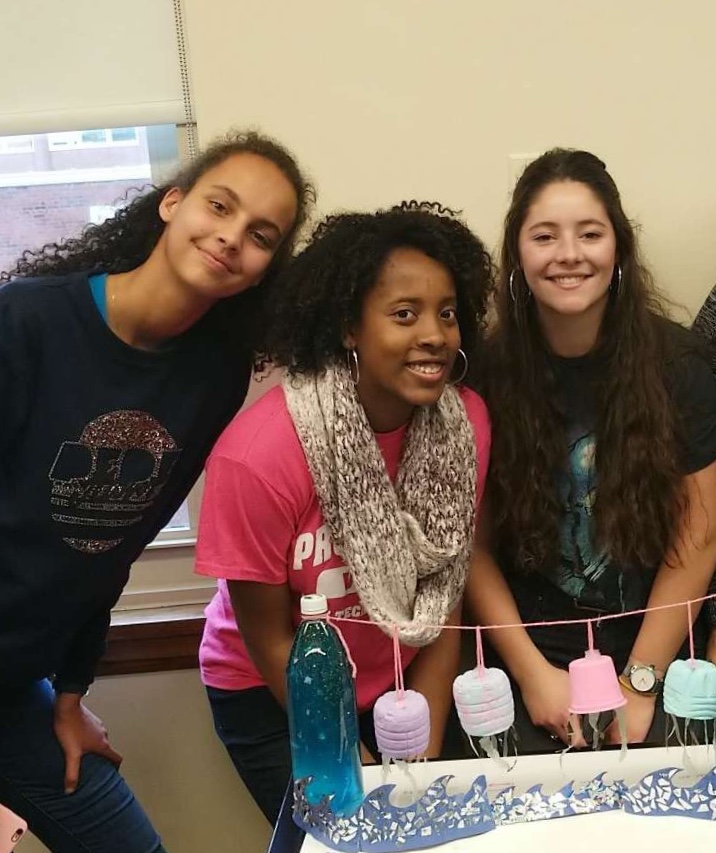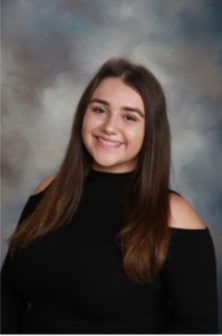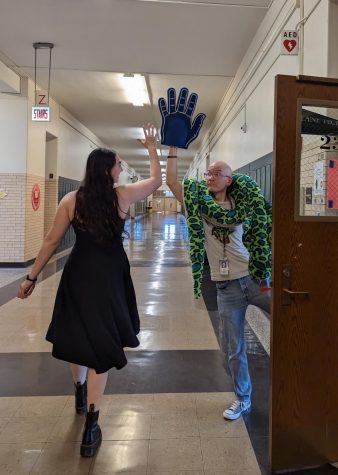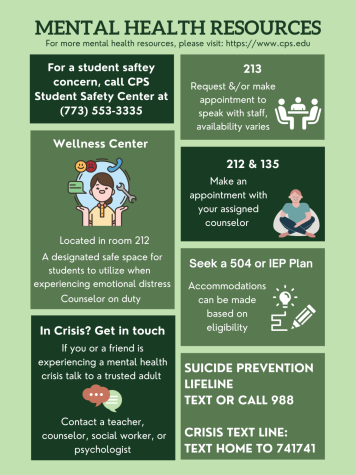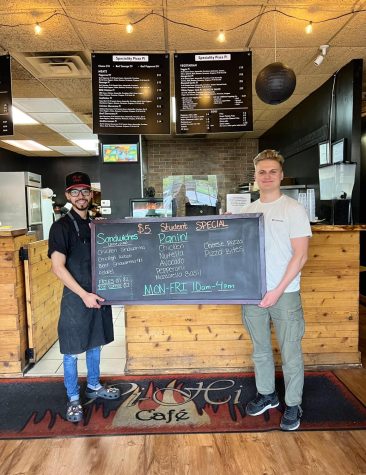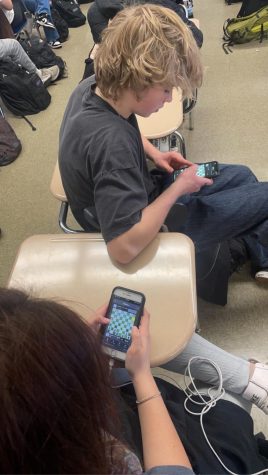Foreign exchange students adapting to American teen life
Ayane Ahmed, left, Ciera Johnson, center, Romy Fichtner, right presenting their project on plastic for Honors Marine Biology
December 27, 2017
New rules, new people, and new ways of learning — these are the thoughts that ran through Romy Fichtner’s, Div. 860, mind during her first day at Lane Tech. She now had to learn to live her life in another language.
Every year, new foreign exchange students leave their homes in other countries thousands of miles away to come and experience life as an American teenager.
For three of Lane’s newest foreign exchange students, adapting to the school’s environment has been a learning experience. Over the past four months, these students have participated in various sports, clubs and school events, attempting to get the full American high school experience.
One of these students is Ayane Ahmed, Div. 962, from Galicia, located in the northern region of Spain.
“As a student I think I like the American school system better, because it’s not as stressful and you can practice sports and be a part of a lot of clubs, because we don’t have any of this in Spain,” Ahmed said.
Having been a part of Lane’s cross country team, she appreciates that teachers were considerate of the fact that students wanted to partake in extracurricular activities.
“It really helped me make friends and feel more comfortable around school,” Ahmed said. “I never had to eat alone during lunch and I already knew some of the people before starting school, which helped me a lot.”
Another student, Fichtner, from Munich, a large city located in southern Germany, compared the social aspect of school in the United States to Germany.
“The students at Lane are awesome,” Fichtner said. “The people are really friendly and always try to help. Also, the school spirit is unique, which you would never ever find in Germany.”
She said she loves the warm environment that Lane provides and that the students here are very welcoming.
Ruta Znotina, Div. 960, is from Riga, Latvia’s capital near the Baltic Sea. Ruta’s experience at Lane has been one that she said is unforgettable.
“In the U.S. we get to pick what we want to learn,” Znotina said.“[In Latvia], we are in school for less time, and our periods are 40 minutes long. We also stay in the same classroom all day and all year, and here [the United States] we change every period.”
The classroom that Ruta describes is considered to be a pretty standard European-styled classroom, according to Auburn University’s website. Most educators in Europe believe that having shorter periods and having the students remain in a room while the professors rotate is a far more efficient system than what we have here in the United States.
The quality of the work both given and produced by students is believed to be far greater in European countries in comparison to the United States, Ahmed said. There is a correlation between the discipline that is implemented in classrooms, and the quality of work produced by students, Ahmed said.
“Students here are more or less like in Spain, but here they use their phones way more in school,” Ahmed said. “Sometimes they are even allowed to listen to music in class. In Spain they would probably kick you out of class for this.”
Over the past few months Ahmed has observed the way that students balance their busy lifestyles with extracurriculars and school.
“Attitude towards school is different, I feel like here academics are not that hard, but most students practice some kind of sport so they don’t have as much time to study,” Ahmed said.
Attempting to balance a busy schedule is something that comes with living in a large metropolitan city and going to a school of such a high caliber.
“I really enjoy the time at Lane,” Fichtner said. “It is one of the greatest opportunities I’ve ever had in my life.”

